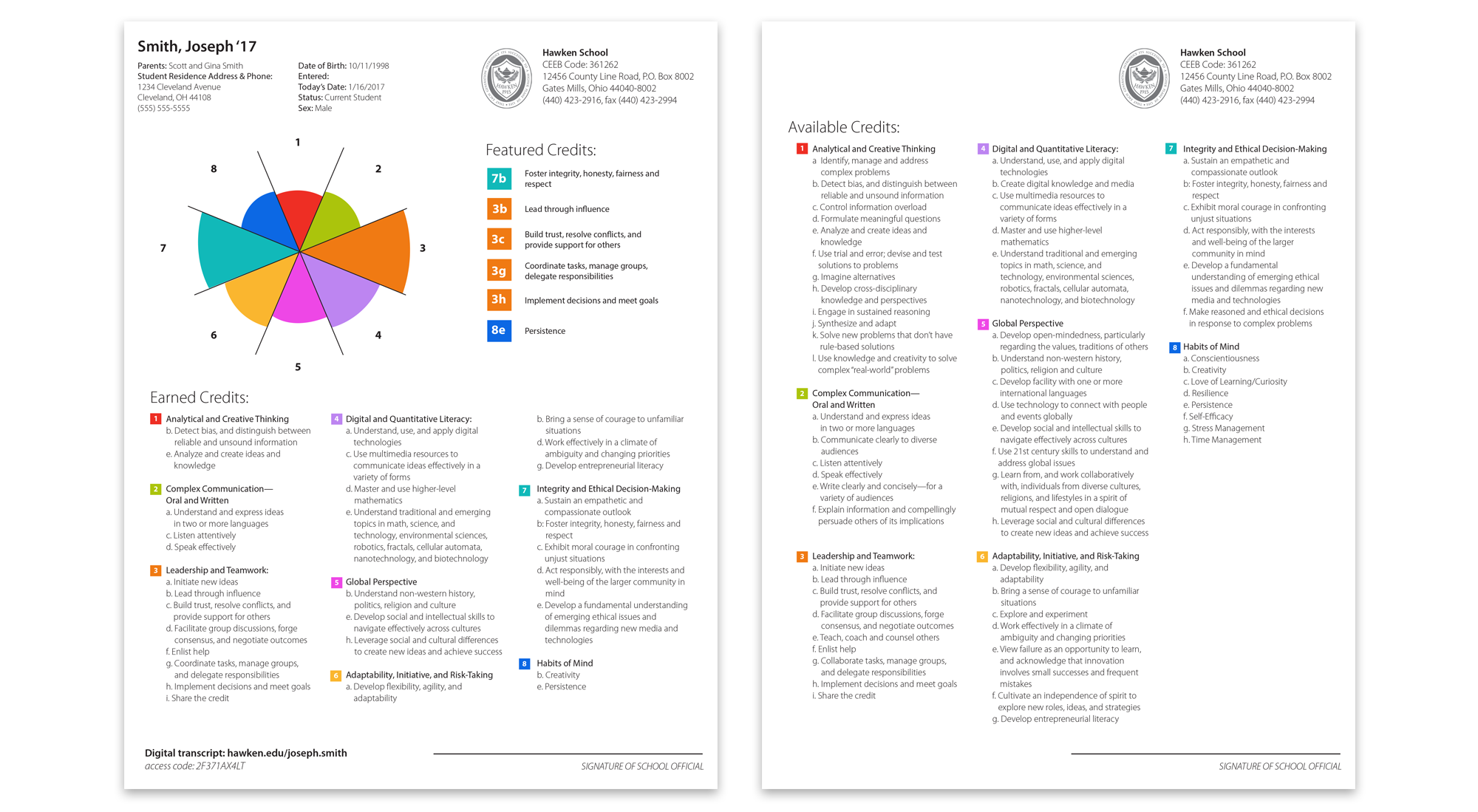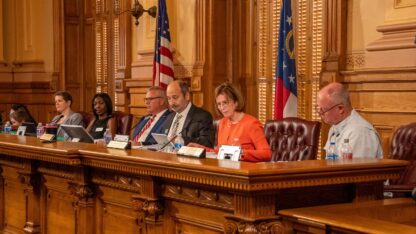Private School Consortium Looks To Change High School Transcripts

Mastery Transcript Consortium
An international consortium of private schools is trying to transform the high school transcript. Instead of listing subjects and grades — or grade point averages — the so-called “mastery transcript” would list a range of credits for skills students have mastered.
Flipping The Script
The transcript would be electronic and look like a web page. College admissions officers could click on each credit and see the academic standard it’s linked to. The transcript would also include students’ work samples. Some credits would be academic. Others would be skills students have demonstrated.
“Because there’s so much that’s not represented on their [current] transcript, they also have to — or feel that they have to — demonstrate excellence in a whole other range of things — in their extracurricular activities, perhaps in their athletics and their arts, but also in their passions,” says Patricia Russell, interim executive director of the Mastery Transcript Consortium.
Russell says traditional transcripts don’t necessarily show all of a student’s strengths.
“For every student, their passions don’t every year align with their academic classes or maybe what their school is even offering,” says Russell, who used to be a dean at Phillips Academy in Andover, Massachusetts.
Under the new system, high schools could choose the kinds of credits they want to include in students’ transcripts.
“You could actually give a credit for resilience,” says Scott Looney, founder and board chair of the consortium and head of school at the Hawken School in Cleveland. “You could give a credit for leadership, or you could give a traditional content credit for history knowledge or chemistry knowledge.”
Looney says unlike traditional transcripts, the new system would give colleges the information they want to know about students.
“Employers and college presidents are saying, ‘We want kids who have 21st century skills, who have leadership skills and are persistent and resilient and have grit and can manage complexity and who understand nuance,’” he says.
Determining ‘Mastery’
However, it could be challenging for high schools to determine whether students have mastered those kinds of skills. How do you decide a student has mastered “leadership skills,” for example?
“Our student government president or leaders who develop a lot of leadership skills and qualities, they should be pretty attractive candidates for college admissions because they’re going to go to college and run clubs and organizations and be great contributors in that way,” says Gareth Griffith, upper learning principal at the Galloway School, which is part of the consortium. Those qualities may be included in students’ recommendation letters, he says. But otherwise, colleges are left to assume kids do or don’t have certain traits.
“We have to figure out ways those students can demonstrate mastery of those sorts of skills,” Griffith says.
Galloway is one of three Atlanta schools involved in the process. The Lovett School and Mount Vernon Presbyterian School also belong to the consortium of more than 100 schools.
Looney says the consortium contains private schools because they tend to have more latitude than public schools. That allows them to experiment more, he says.
“Because the public school legislation and centralized curriculum is very specific state by state and has a little less flexibility than we do, we wanted to at least get out of the gate as a nascent organization with the schools that have the most flexibility,” Looney says.
He also hopes this group of schools with strong academic reputations will send a message to college admissions offices that the transcript is a worthwhile endeavor. However, Looney says he’d like to bring a variety of schools into the process eventually.
“We hope that this will be something that parochial schools, public schools, charter schools will be interested in joining along the way,” he says.
The mastery transcript is still in the planning stages. The consortium is just 3 months old. A handful of schools may pilot the transcript next year. However, the consortium says it could take up to 10 years to fully implement.
9(MDAxODM0MDY4MDEyMTY4NDA3MzI3YjkzMw004))








